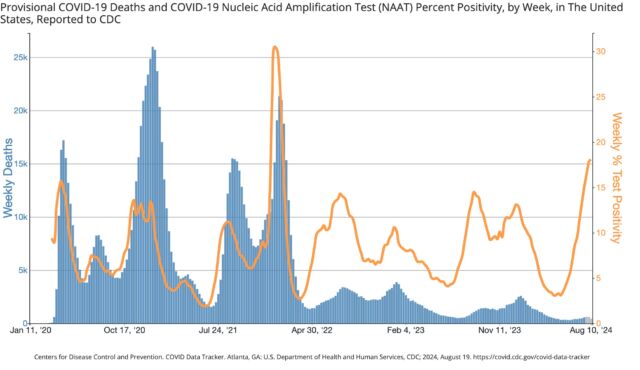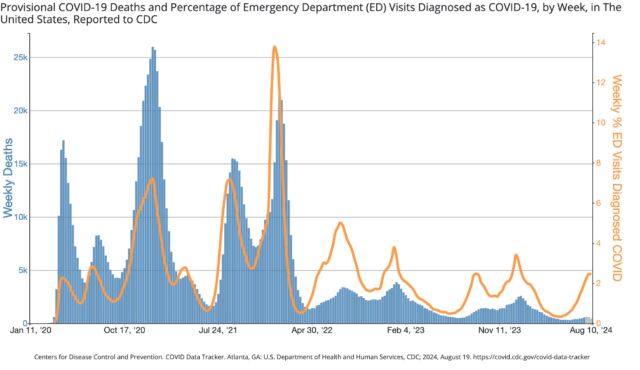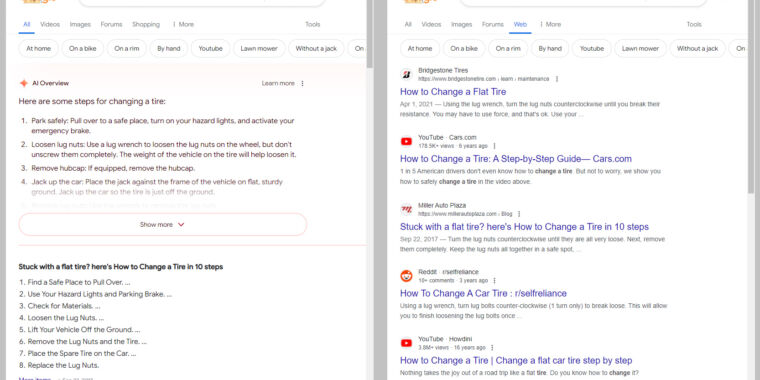With the nation experiencing a comparatively massive summer season wave of COVID-19, the Meals and Drug Administration is contemplating signing off on this yr’s strain-matched COVID-19 vaccines as quickly as this week, in accordance with a report by CNN that cited unnamed officers aware of the matter.
Final yr, the FDA gave the inexperienced gentle for the 2023–2024 COVID photographs on September 11, near the height of SARS-CoV-2 transmission in that yr’s summer season wave. This yr, the summer season wave started earlier and, by some metrics, is peaking at a lot increased ranges than in earlier years.
At present, wastewater detection of SARS-CoV-2 exhibits “very excessive” virus ranges in 32 states and the District of Colombia. A further 11 states are listed as having “excessive” ranges. traits, the southern and western areas of the nation are presently reporting SARS-CoV-2 ranges in wastewater that rival the 2022–2023 and 2023–2024 winter waves, which each peaked on the very finish of December.
-
Wastewater SARS-CoV-2 ranges, by state
-
Tendencies in wastewater SARS-CoV-2 ranges by area during the last yr
-
Tendencies in wastewater SARS-CoV-2 ranges by area for all the pandemic
Take a look at positivity—a metric that has weakened given the dramatic decline in testing—exhibits a weekly check positivity fee of 18.1 % for mid-August (amid a check quantity of roughly 43,000). Such a fee, if really reflective of instances, has not been seen because the preliminary towering omicron wave of January 2022, which peaked at 30.5 % (with a check quantity of roughly 991,000).

The excellent news is that given the substantial accumulation of safety from previous infections and vaccinations, the 2 most critical metrics—emergency division visits and deaths—haven’t proven related rises. The weekly proportion of emergency division visits with a COVID-19 analysis is low and just like final yr’s summer season wave. Deaths are likewise low, although they’re nonetheless solely provisional counts for the newest weeks.

The FDA has firmly embraced a method to supply annual COVID-19 vaccines within the run-up to winter waves, not summer season waves. The company’s pondering has at all times been to encourage Individuals to get their flu and COVID-19 vaccines collectively between September and November, simply earlier than a mob of cold-weather respiratory sicknesses strike collectively. The recent vaccination enhance can uninteresting the degrees of extreme respiratory illness at a time when well being care techniques are most susceptible to turning into overwhelmed.
Seasonality
However, whereas seasonal flu and another respiratory viruses reliably surge nearly solely within the winter, the seasonality of COVID-19 was by no means a given. And, up to now, summer season waves have arisen as persistently as winter ones, creating some awkwardness for the vaccine releases.
Some consultants have beneficial getting a COVID-19 vaccine to guard towards the summer season surge. “Now could be the time to get a dose with this surge,” Michael Osterholm, director of the Heart for Infectious Illness Analysis and Coverage on the College of Minnesota, instructed CNN on Sunday.
Nonetheless, the one vaccines presently obtainable goal final yr’s strains (associated to the XBB.1.5 omicron variant), that are lengthy gone and should not provide sturdy safety towards present strains (JN.1 and KP.2 omicron variants). Even when the 2024–2025 KP.2-targeting vaccine is authorized by the FDA this week and hits pharmacy cabinets subsequent week, a dose takes two weeks to provide full safety. By that point, the summer season wave will possible be declining. In truth, it seems to be to have already peaked in some elements of the nation, together with in some southern and western areas.
The opposite factor to contemplate is timing for max safety for the possible winter wave. For wholesome individuals 5 years outdated and above, the CDC beneficial getting just one shot final yr. The photographs provide peak safety for round 4 months. If you happen to get your annual shot originally of September, your safety could also be on the decline if COVID-19 peaks once more on the flip of the yr, because it has the previous two years.
Based on the 2023–2024 steering, people who find themselves 65 and older can get a second COVID-19 booster 4 months after getting their first. People who find themselves reasonably or severely immunocompromised can also get further doses of the up to date COVID-19 vaccine.



